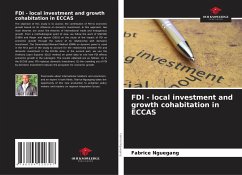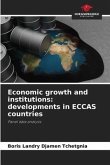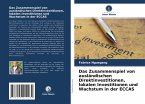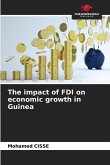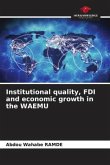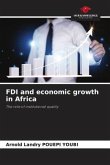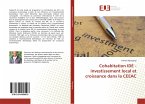The objective of this study is to assess the contribution of FDI to economic growth based on its influence on domestic investment. In this approach, two main theories are used: the theories of international trade and endogenous growth. From a methodological point of view, we follow the work of UNCTAD (1999) and Mayer and Agosin (2010) on the study of the impact of FDI on economic growth through the nature of its relationship with domestic investment. The Generalized Moment Method (GMM) on dynamic panel is used in the first part of the study to account for the relationship between FDI and domestic investment in the ECCAS zone. In the second part, we use the Ordinary Least Squares (OLS) method on panel data to see how FDI affects economic growth in the subregion. The results obtained are as follows: (1) in the ECCAS zone, FDI replaces domestic investment, (2) the crowding out of FDI by domestic investment reduces the prospects for economic growth.
Bitte wählen Sie Ihr Anliegen aus.
Rechnungen
Retourenschein anfordern
Bestellstatus
Storno

